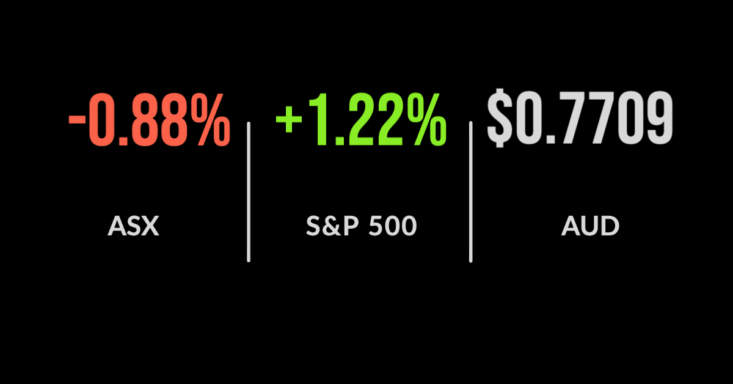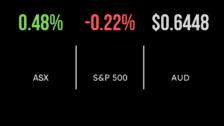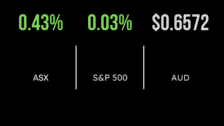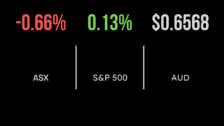Inflation fears drag ASX to a four-week low
ASX follows Wall Street lower, defensive rotation, Graincorp beats expectations
The ASX200 (ASX:XJO) has followed Wall Street lower, falling 0.9%, after higher-than-expected inflation figures spooked investors overnight.
Short-term traders are betting that the Federal Reserve will be forced to increase interest rates earlier than expected, suggesting long-term growth companies will be worth less as a result.
The selling pressure remained in the IT sector which fell 4.7% whilst healthcare was a rare winner, adding 1.0% behind CSL (ASX:CSL), up 1.0% benefitting from a weaker AUD.
Graincorp (ASX:GNC) jumped 5.2% after reporting an improved first-half profit and upgraded expectations for the full year. Earnings were almost 40% higher, hitting $140 million whilst net profit increased from $27 to $51 million.
The result, driven by strong grain crops and growing exports, was enough to see the dividend returned at 8 cents per share.
Small-cap favourite Perenti Global (ASX:PRN), which provides services to the mining sector, fell 29.2% after announcing a shortage of labour and stronger AUD had impacted margins, which would see second-half earnings below the first half.
Orica profit halves, Xero investors demanding faster growth from Xero
Explosives producer Orica (ASX:ORI) hasn’t been able to leverage an incredible rally in commodity prices into higher profits, declaring a 53.6% fall in first-half profit to just $76.7 million.
The weak result came after revenue declined by 8.9% to $2.6 billion, with the CEO noting that three key factors, being a stronger AUD, geopolitical issues in the US and China, and COVID-19 disruptions had impacted both production and sales. Shares fell just 0.6% on the news despite a significant cut in the dividend to 7.5 cents per share.
New Zealand’s homegrown tech leader Xero (ASX:XRO) continues to have success in monetising their world leading accounting platform, reporting an 18% increase in revenue to NZ$848 million, with net profit increasing fivefold to NZ$19.8 million.
Earnings, a more accurate measure given the significant ongoing expenditure to improve their online platform, jumped 39% to NZ$191 million.
Management confirmed its strongest ever half-year with 288,000 net additions, with subscribers growing 20% for the full year. Shares fell 13.0% on the news.
Sell off halted as value rotation continues, Alibaba posts a loss amid revenue growth, jobless claims hit new low
The three-day sell off in US markets over inflation fears appears to have come to an end, with the Dow Jones and S&P500 both gaining 1.3% and the Nasdaq 0.7% as investors rotated back into ‘value’ names including industrials, financials, and utilities companies.
These companies are expected to benefit from a full reopening of the US economy, with central banks reiterating that inflation will be transitory in 2021.
Energy stocks in Australia are likely to fall sharply at the open after oil prices continued to slump.
Alibaba (NYSE:BABA) the owner of T-Mall and ANT Financial, which had its IPO delayed last year, reported a rare loss with the US$2.8 billion fine reversing the c$2.0 billion quarterly profit. Despite the attention, the fintech reported a 50% increase in profit itself; shares fell over 6%.
Hope continues to grow that the world can quickly return to normal, with unemployment claims falling to 473,000, a pandemic low.










